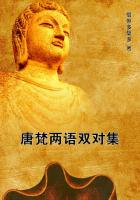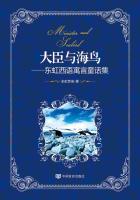THE OUTLOOK REGARDING CASTE THE QUESTION -- HOW FAR THE INHERITANCE PRINCIPLE ACTUALLYPREVAILS -- INFLUENCES FAVORING ITS GROWTH -- THOSE ANTAGONIZING IT --THE PRINCIPLE OF INHERITANCE AND EQUAL OPPORTUNITY AS AFFECTING SOCIALEFFICIENCY -- CONCLUSION
A VERY pertinent question is that of the part which the hereditary or caste principle is likely to play in the coming life; whether it is probable that caste, other than that due to race, will arise in modern society;or that the hereditary principle will, to any degree, have increased ascendancy.
The answer should probably be that the principle is always powerful, and may gain somewhat as conditions become more settled, but certainly can never produce true caste in the modern world.
As regards the power, in general, of the inheritance tendency, I have perhaps said enough already. The inheritance of property, notwithstanding the perennial agitation of communism, is probably as secure as any institution can be梑ecause there is apparently nothing practicable to take its place as a means to economic stability. And with inheritance of property goes, in all prosperous countries, a class of people who come without effort into wealth and all its advantages: their number I and riches are certainly on the rapid increase. The less I formal inheritance of culture, opportunity and position is I equally real.
(230)
As to occupation, even now a census would perhaps show that the majority of young men follow that of their father, or one cognate to it. Most farmers'
sons probably remain farmers (in spite of the well-known drift to the towns), most mechanics' sons become mechanics, and a large proportion of the children of professional men enter the professions. The child of a well-to-do parent is given, as a matter of course, the education, often long and expensive, which is required for entrance upon a profession, and is coming to be necessary also for commerce. Not only this, but he is made to feel from childhood that success in achieving a professional or business position is expected of him; he must get it or lose the respect of his family and friends. In the majority of cases梩hough the minority on the other side is no small one梩hese opportunities and incitements, together with the power to wait and choose which judicious paternal support gives him, are effective in drawing out his energies and directing them continuously upon the desired point. Certainly they will not make a good lawyer or a captain of industry out of a fool, nor will the lack of them keep decisive natural ability from exercising these functions; but with the common run of men, having fair capacity not very definitely inclined in a special direction, they are potent. Paternal suggestion and backing must be used with great discretion and often fail entirely, but no man of the world, so far as I know, regards them as unimportant.
If we ask whether the influence of inheritance is likely to increase or diminish, we find, on studying the situation (231) as a whole, a conflict of tendencies the precise outcome of which can only be guessed at.
As favoring the growth of the principle and the crystallization of classes, we have chiefly two considerations: the probability of more settled conditions, and the influence of that sharper differentiation of functions which modern life involves.
Social change, as already pointed out, is a main force in breaking up the inheritance of function, and to this must largely be attributed the comparative weakness of the principle in the United States. The changes incident to the settlement of a new country, coinciding with those incident to an economic revolution, have set everything afloat and brought in a somewhat confused and disorderly sort of competition. Our cities, especially, are aggregates of immigrants, most of whom have broken away from early associations, and a large part of whom are performing functions unheard of by their fathers. It is hardly possible that trades should become hereditary when most of them endure less than one man's lifetime. And something of the same uncertainty runs through commerce and the professions.
Without predicting any great decline in the pace of invention, we may yet expect that the next fifty years will see a great deal of the consolidation that comes with maturity. The population will be comparatively established, in place at least, and the forces making for inheritance will have a chance to work. An immense body of transmitted wealth will exist, and democratic influences will have all they can do to keep it from generating an aristocratic spirit. Industries, professions and trades can hardly (232) fail to be more stable than they have been, and the rural population, as always, will be a stronghold of the forces that favor inheritance.
The sentiment of regard for ancestry, of which caste is the extreme expression, is likely to increase in this and in all new countries. As communities grow older the family line comes more and hnore under public observation. It is seen and displayed in memory, wherever any sort of continuity is preserved, and, being seen, it is judged, and the individual shares the credit or discredit of his kin. While this influence is now weak in the United States, on the whole, and is almost absent in the recent and confused life of our cities, it is gaining rapidly wherever梐s is generally the case in the East and Southeast outside of large towns梩he conditions are settled enough to make the family as a whole a matter of observation.
And there can be little doubt that it is increasing in the West wherever it has a similar chance.
In some ways this greater recognition of descent is wholesome. A sense of being part of a kindred, of bearing the honor of a continuing group as well as of a perishing individual, tends to make one a better man; and from this point of view our somewhat disintegrated society might well have more of it.















